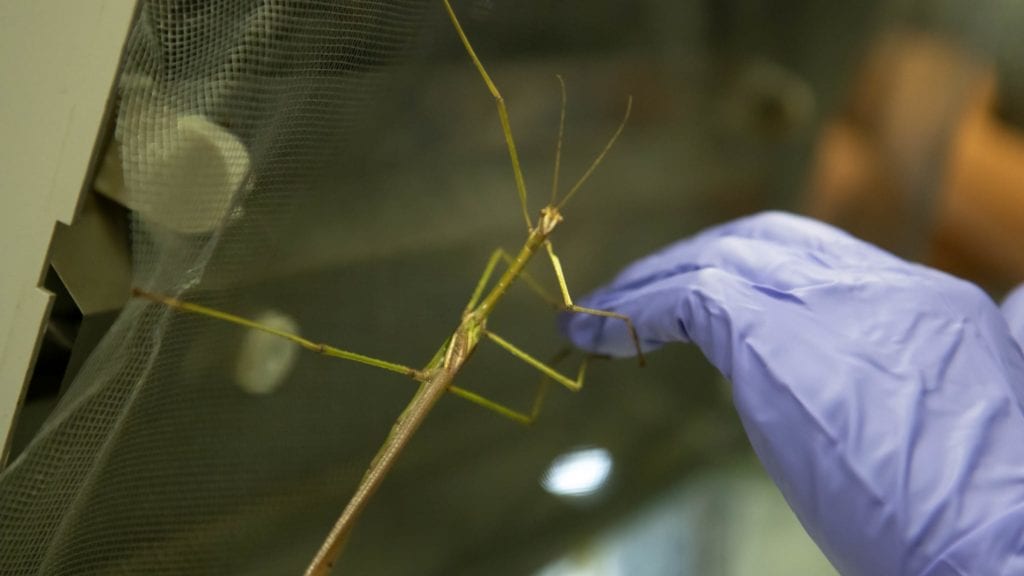New Environmental Science laboratories strengthen Yale-NUS College’s research infrastructure
 Photo by Vaness Kow for Yale-NUS College.
Photo by Vaness Kow for Yale-NUS College.
Those with a phobia of insects, beware – there is a room on campus where all kinds of creepy-crawlies live, from stick insects to tarantulas. While its existence might haunt your nightmares, it is actually an important laboratory that provides a rich resource for researchers on campus. This room is the Insectary, and it is part of the Environmental Science laboratories that were officially opened on 2 October 2019.
While the Insectary is not a new facility on campus, this alongside three new laboratories at the Yale-NUS Science Centre on campus, create a holistic infrastructure for environmental researchers on campus. The three new laboratories include a molecular laboratory for studying biology at the microscopic level, a wet laboratory for performing experiments involving chemicals, and a new data laboratory.
The Environmental Science laboratories are the latest part of a three-phase development project to provide robust research infrastructure for students and faculty in the sciences. The first phase was the opening of a suite of Life Sciences laboratories in 2018, and the final phase will be the opening of new Physical Sciences laboratories next year. Once the project is completed, all the Yale-NUS Science laboratories will serve the dual function of teaching and research, as part of our wider initiative to support excellence in science through innovative teaching and research.
Professor of Science (Environmental Studies) Stephen Brian Pointing, who is also the Director of the Division of Science, said: “The Environmental Science laboratories greatly expand our ability to offer students experiential learning on topical issues related to the understanding, valuation and protection of Singapore’s natural beauty. The state-of-the-art equipment and analytical tools are designed to enrich and add value to more traditional field-based studies of Singapore’s natural environment.”
One of the researchers who conducts research at the Environmental Science laboratories is Assistant Professor of Science (Environmental Studies) Eunice Jingmei Tan who primarily works with stick insects. Beyond the Insectary, she also taps on the other laboratories to complement her research. “The new data laboratory will better facilitate how we share, manage and discuss data in bigger groups. The wet laboratory, while mainly used by Assistant Professor of Science (Environmental Studies) Michiel van Breugel, supports my research and teaching too, as my team uses equipment like the oven, refrigerator, and scanner for our research.”
Students using the laboratories are embarking on diverse projects ranging from measuring how tropical forest trees respond to climate change to how complex behaviour in insects helps them avoid predators.
Haaken Bungum (Class of 2021), who works with Asst Prof Eunice Tan on stick insects, said: “The laboratory is a great place to be able to get hands on experience, especially as it is such easy access to all. There is no need to travel, for instance, and we can come in whenever is convenient to do work. It also allows us to get closer to professors and their lines of research, and understand more about lab dynamics and what is it like to work in one.”
Please watch the video to learn more.





